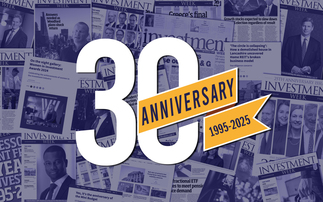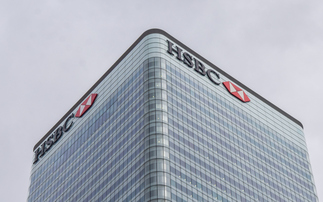PARTNER INSIGHT: Managers from Investment Week's Europe Breakfast Briefing discuss the drivers and risks for these strategies.
Old Mutual Global Investors
Ian Ormiston
Manager of the Old Mutual Europe (ex UK) Smaller Companies Fund
Can you give a brief overview of your fund and how it may work in a client's portfolio?
The fund seeks to deliver capital growth over the medium term, investing in shares issued by smaller companies in Europe ex UK.
Our investment process is entirely bottom-up; stocks are added on the basis of having an attractive valuation and sufficient liquidity to be bought and sold. We are open to a broad range of company styles.
We typically look for companies that can achieve returns within 12 to 36 months. Sector and country exposure is purely a result of the companies in which we invest - we do not make sector or country calls. However, we try to avoid excessive concentration.
The fund is equal-weighted to ensure conviction across holdings and a truly active approach to portfolio construction.
What are some of the key issues you discussed with delegates at the event?
European small caps have outperformed their larger peers over the long term, and delivered consistently better earnings growth. We expect this to continue in the future.
The European smaller companies market is an under-fished ocean. On average, while each European mega cap is covered by 31 sell-side analysts, each European smaller company is covered by just four. And the quality of research on smaller companies is likely to deteriorate further as fewer resources are committed to it. Opportunities are there to be found.
In terms of market cap, our current holdings are lower down the size scale than our peers; we believe the market becomes more and more imperfect down the size scale, and the greater the imperfections, the greater the opportunity set.
There has been a notable pick up in IPO activity across Europe. While the value of issuance in 2016 totalled £19.3bn, 2017 saw an impressive £34.1bn. We tend to shun the jazzy headline offerings, happy to steer clear of potentially expensive, overhyped fads that haven't been around long enough for us to accurately determine the likelihood of them being winners or losers. As with the broader portfolio, we have no interest in mere flashes in the pan.
All data sourced from Bloomberg, as at 31/12/17
SYZ Asset Management
Michael Clements
Portfolio Manager of the fund OYSTER European Continental Europe and Head of European Equities
Can you give a brief overview of your fund and how it may work in a client's portfolio?
The OYSTER Continental European fund is a concentrated, contrarian stock picking fund focused on the Europe ex-UK opportunity. Our main investment edge over the market is our long investment horizon of three to five years which allows the fund to take strong conviction positions in stocks that are currently out of favour with short term investors. The result is an attractive portfolio that is able to generate strong levels of alpha over time but with low levels of overlap with both passive investments and also with competitor's funds. We believe that adding our fund into a wider portfolio can give clients good diversification and enhance their risk & return profile.
What are some of the key issues you discussed with delegates at the event?
We discussed our contrarian approach to European markets and why clients should consider investing in our fund. In particular we argued that taking a long term view can give a sustainable edge over the market by allowing stock pickers to identify high quality companies, with strong balance sheets but which are trading at temporarily depressed levels. If this process is executed well, it can lead to strong alpha over time.
I gave the example of the recent spike in the VIX index which had unsettled investors globally. We had identified volatility as an attractive contrarian opportunity with most other investors implicitly or explicitly going short volatility. We took a different view and throughout 2017 had been steadily increasing our holding in Flow Traders, an ETF market maker, which we viewed as the best way to play this theme. When the market environment changed in early February 2018, the fund benefitted substantially from the sharp increase in the Flow Traders share price as other investors looked to get exposure.
The key takeaway for investors is that being a contrarian investor is not always easy but, when done well, can provide an attractive diversification to other sources of alpha in a wider client portfolio.
Union Bancaire Privée
Charlie Anniss
European Small Caps, Senior Portfolio Manager
Can you give a brief overview of your fund and how it may work in a client's portfolio?
The fund invests in strongly financed, well managed, competitively advantaged companies which demonstrate a strong ability to sustain attractive returns on capital and that the manager believes have good prospects for future growth. Inefficiencies arising from lack of coverage in this area of the market cap spectrum and short term market disruptions provide opportunities to invest in quality businesses with strong prospects for future growth at attractive valuation entry points.
The fund selects attractive investment opportunities from a broad and diverse range of Pan European small and mid-sized companies (E200m-5bn). This area of the market is often overlooked or misunderstood by investors, particularly in a regional context.
What are some of the key issues you discussed with delegates at the event?
We seek to use low coverage in the small cap universe to our advantage. We screen for ‘undercovered gems' by looking for companies which display the symptoms of being good companies in the past - good returns, strong balance sheets, attractive growth rates - but are covered by fewer than four analysts. Thorough analysis of this group of companies often throws up some very interesting investment opportunities that the market is not focused on.
Smaller companies are more exposed to cyclical areas of the market like industrials, engineering, business services and IT than their large cap counterparts. They are also more exposed to ‘domestic Europe' with a larger share of sales coming from their home continent which has meant that they are less exposed to currency fluctuations. As a result, smaller company earnings has benefited as we have started to see a more synchronised macroeconomic recovery in Europe during the course of 2017. Small cap earnings are on track to deliver 20% growth in 2018 and we think that they will continue to offer attractive investment returns for diligent stockpickers.
First Trust Global Portfolios
Gregg Guerin
Senior Product Specialist
Can you give a brief overview of your fund and how it may work in a client's portfolio?
First Trust Global Portfolios' senior product specialist Gregg Guerin outlined First Trust's AlphaDEX time-tested methodology - which scouring the European markets - aims at finding the best value and growth stocks.
The Eurozone AlphaDEX Ucits ETF, which is based on the Nasdaq AlphaDEX Eurozone index, utilises a proprietary stock selection methodology aimed at generating alpha relative to traditional passive indices. It combines value and momentum factors that are agnostic with regard to market capitalisation size of index constituents. The fund is diversified across 150 stocks from multiple sectors and countries. The fund, launched in 2014, recently crossed it's 3yr anniversary, has garnered €200 million in assets and ranks in the top 3% of Eurozone Open End Funds (as classified by Morningstar)














